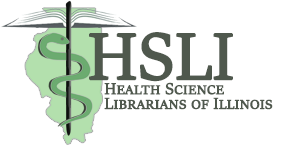(via John Meier, Pennsylvania State University)
We invite you to submit a proposal by Thursday, August 31, for a case study outlining your practice of inclusive leadership and the impact it has had on your institution, community, or the broader profession.
For more on inclusive leadership, you can view the ACRL panel on Inclusive Leadership video on YouTube or read the Deloitte article on Inclusive Leadership.
Purpose
To acknowledge the rising importance of inclusive leadership practices in academic libraries, ACRL New Roles and Changing Landscapes Committee is seeking to publish a toolkit to collect best practices and examples fitting our proposed definition of inclusive leadership:
“Inclusive library leaders are individuals who are aware of their own biases, actively seek out and consider different perspectives to inform their decision-making, collaborate more effectively with others through cultural competency, and center empathy and compassion in their approach to leadership.”
The purpose of these case studies are to supplement the literature review (see our draft annotated bibliography) and toolkit with examples and stories of inclusive leadership in libraries. Leadership is not only positional title or authority. Therefore, we are seeking authors representing practices from all aspects and levels of library work, experiences, and identities.
The editors acknowledge our own positionality and privilege as well as our role in perpetuating systemic injustices. We strongly encourage proposals from individuals of all ethnicities, races, countries of origin, gender identities and expressions, ages, abilities, religions, sexual orientations, economic backgrounds, scholarly and professional backgrounds and experiences, types and sizes of institutions, and other differences. We are committed to amplifying and highlighting lived experiences from these different perspectives as they relate to leadership and management.
Content Guidelines
If accepted, your case study of 2,500-4,000 words should be written in the first person and in a conversational approach by August 1, 2024. We encourage you to speak to your lived experiences and those of others. You will discuss the following areas through your case study:
- Institutional Context: This section should include a general description of institutional background information, including Carnegie classification, student body profile (e.g., % undergraduate/graduate, socioeconomic indicators, other relevant information), an overview of academic program strengths, and any additional context about your location/local community.
- Short identity/positionality statement: what are your key identities and approaches to your work? How do these impact your leadership or view of the topic?
- Practical applications: what did you do?
- Self-reflection: What lessons did you learn from this process? What did the experience mean to you? What would you do differently next time?
- Final Take-Aways: Please summarize your primary pieces of advice for readers. If feasible, include a call to action for readers.
Full timeline:
- Proposals due: August 31, 2023
- Proposal acceptance: October 31, 2023
- Draft case study: February 1, 2024
- First round of peer reviews: April 30, 2024
- Final case study: August 1, 2024
- Final round of peer reviews: October 31, 2024
There is the opportunity to receive extra support for newer scholars. Please indicate if this is desired. This request will not detract from acceptance.
Please direct your proposal and any questions to ACRLInclusiveLeadership@gmail.com by August 31, 2023. Your proposal should be 300-500 words in length, indicate up to three of the most applicable Chapter Topics, and include any co-authors and their contact information as well.
